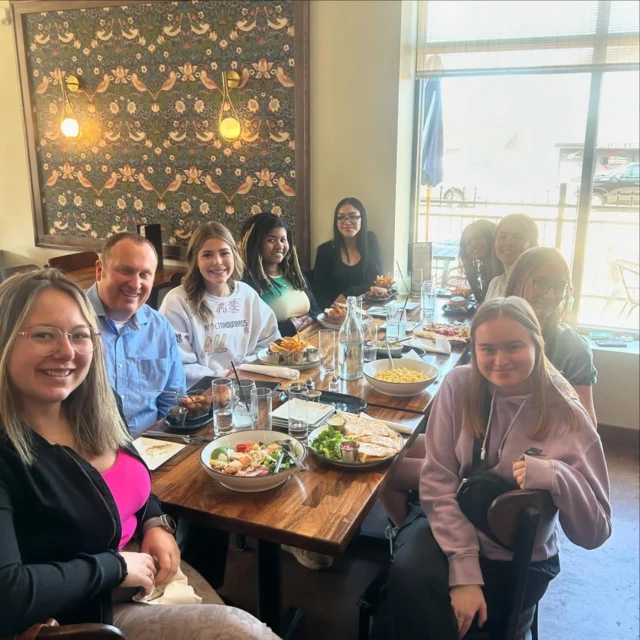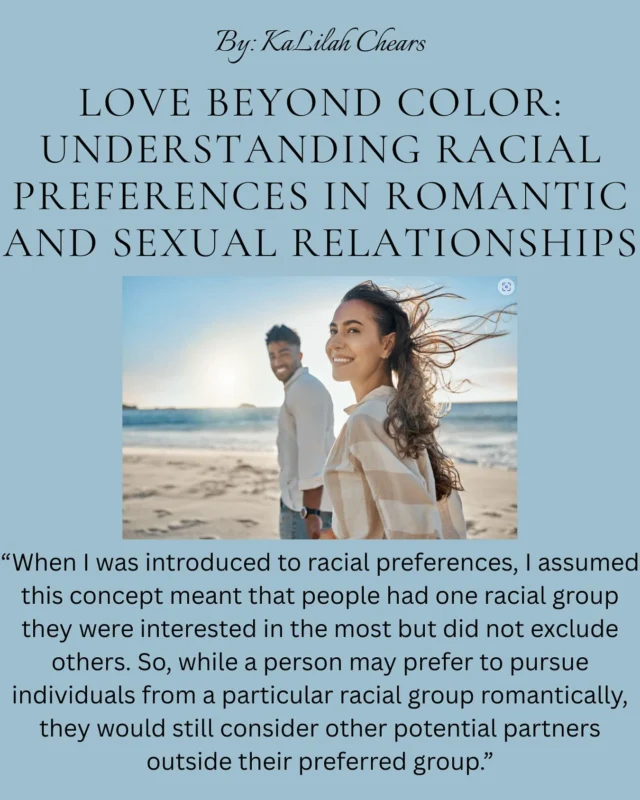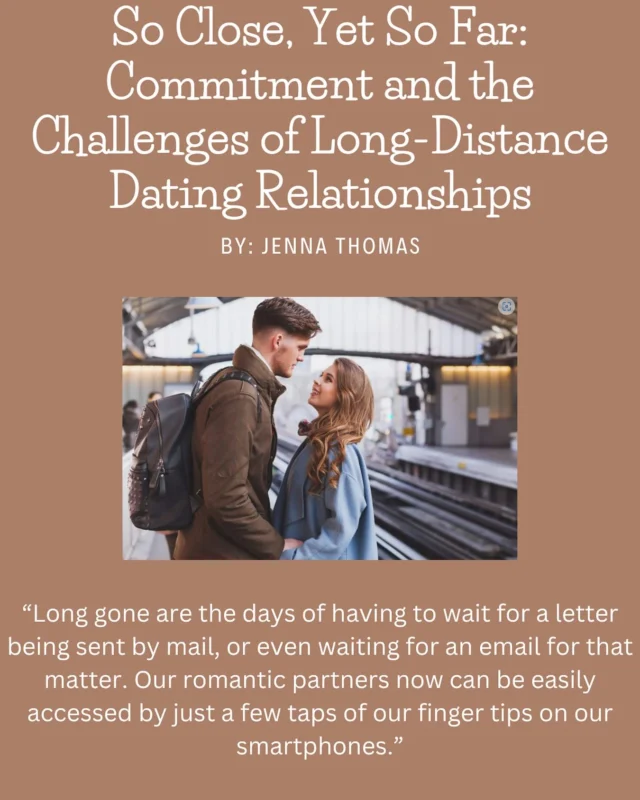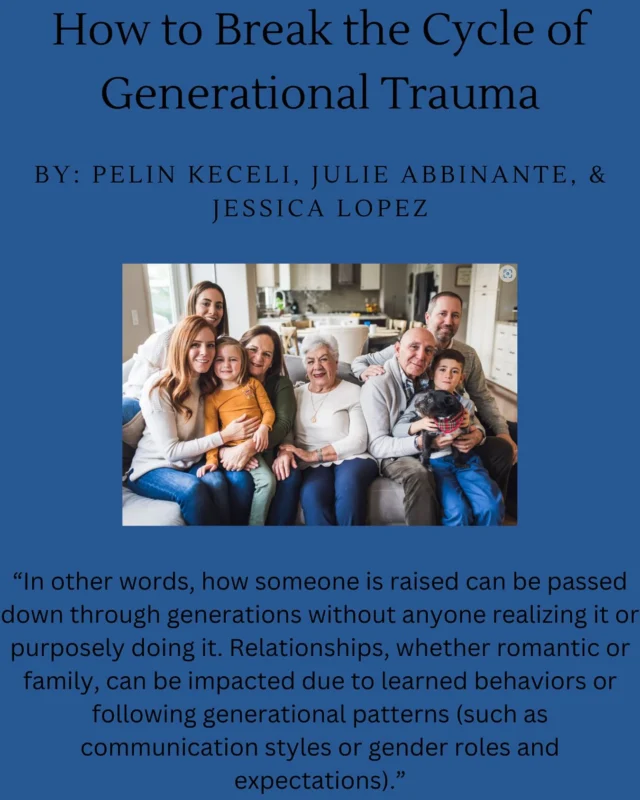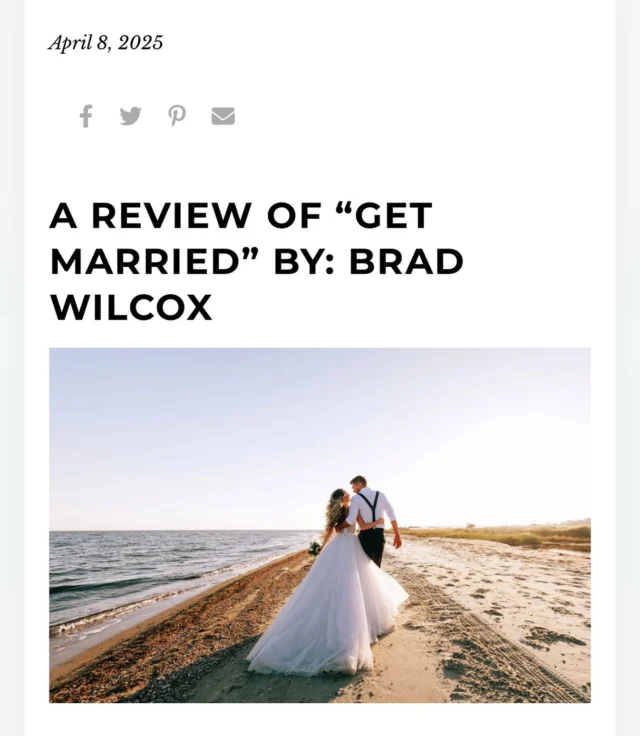You may find it surprising to hear that according to a 2021 YouGov study, 41% of Americans reported to possess some belief in ghosts or spirits of the supernatural. While a discussion of those statistics is beyond the scope of this article, for those of us who find ourselves in the land of the living, the continued significance of ghosting in our social lives remains all but undeniable in this era of modern dating. Individuals use a number of different breakup strategies. As has been previously discussed on this blog in years past, ghosting continues to be a relevant and ongoing form of ending relationships among emerging adults. If you’ve at all been out there searching for your “Boo” in the ever-evolving landscape that is modern dating culture, chances are that you have either participated in ghosting or have been ghosted yourself at some point on that journey. In a recent study by Collins and colleagues their participants were already familiar with the ghosting and its implications, and 96% described themselves as having experienced ghosting during breakups.
What is Ghosting?
According to Pancani et al (2022) ghosting refers to “the practice of breaking up with a romantic partner or a friend without providing any explanation and avoiding any communication attempt from the victim.” Even if you don’t foresee an incident of ghosting in your romantic life, you may still find that the practice can be deployed in the workplace, among friends, or even family members. For example, one study found that nearly half, 44.8%, of their sample had been previously ghosted by a personal friend outside of romantic relationships altogether.
Why do people ghost? Who is most likely to ghost? What does the research say about its effects? It may be encouraging to hear that there are science-based predictable outcomes that have been studied with depth concerning these types of interactions. In this article, we intend to elaborate on what can be learned from this body of literature in hopes that those findings and the experiences of others may help each of us make more informed decisions navigating our own relationships. Throughout, this post we will provide practical skills that enable us to better identify when we might be at risk of this behavior, how ghosting affects the victim- and the user, and what shapes a ghost.
Relationship Dissolution Strategies
Breakups, no matter how initiated, are never easy and often complicated for both parties. With any relationship termination strategy, initial negative feelings of rejection will be present in the fallout. This much is unavoidable and is generally reflected upon in the literature to be “among the most distressing events in humans’ life”. Should you find yourself faced with such a situation, it can be difficult to know what relationship dissolution strategy is appropriate, especially if your relationship status was left to be ambiguous and neither partner is entirely sure what should be expected of them. This, a further complexity has seen its way into dating culture as more people are putting off labels in favor of more shallow relationships and fewer “define the relationship talks” as they are known in the literature. A further discussion of this concept can be found in previous posts published on this blog.
While not all relationships are doomed to end their life cycle in ghosting and not all breakups are one-sided, it can still be valuable to know which methods work best and what the research says about those that don’t.
Before commenting on studied effects that ghosting has on its recipients, according to general public perception, the phenomenon ghosting is already thought of as a more unfair relationship-terminating strategy than direct rejection, and given what we know from the research, that sentiment does appear to have merit. Though ghosting is not always unilateral, with clear victims and perpetrators, we will first focus on those who take on the traditionally understood roles of ghoster and ghostee, concluding with considerations that ought to be taken into account by any potential ghoster.
- Ghosting: Those who experience ghosting report stronger feelings of exclusion even than those who were rejected directly. The explanation for this is thought to be because, unlike with direct rejection or an aggravated fallout, in the case of ghosting, the exact cause of rejection is unknown, thereby inhibiting an important psychological mechanism known as “the account-making process” which allows us to interpret meaning from negative episodes and more easily recover from them. This may enable a ghosting incident to carry with it a persistent psychological toll even more impactful than that of emotionally scaring words that might be exchanged when breaking up directly on bad terms. Further, research by LeFebvre & Fan examined the effects of being ghosted with respect to future dating attitudes. Their findings suggest that people tend to process ghosting in either of two primary ways: (1) Cautious Communication and (2) Acceptance. Cautious communication describes a persistent change in behavior, that reportedly damages the ghostee’s ability to trust others, motivates them to keep their distance in initial romantic encounters, and otherwise hesitate to pursue more committed relationships before making greater investments in a potential partner. Acceptance, represents the adoption of a more pessimistic outlook on dating dynamics. In general, this occurs when an individual internalizes that ghosting practices are an expected and inherent part of the dating process, but also emphasizes their capacity of overcoming and accounting for these forces.
While more risk-averse approaches to dating and relationships might be advised to avoid the possibility of heartbreak, it’s also possible that in effect, generally more guarded and detached attitudes can lead one to engage in more frequent shallower relationships that themselves are shown to contain a higher likelihood of encountering ghosting. Similar mindsets may provide an explanation for why victims of ghosting are not discouraged from the practice but instead, are actually more likely to become a ghoster themselves in the future.
If you’ve been ghosted before, you may have encountered negative stereotypes in addition to a negative end to your relationship. According to Wu and Bamishigbin (2023), ghostees are perceived to be socially inferior. Some choice words used to describe them in the study are clingy, pushy, annoying, toxic, clueless, weak, and jealous, among other similar terms. Further findings suggest that ghosters, it seems, recognize the potentially harmful nature of ghosting, sometimes even admitting that it may cause permanent damage. This knowledge can result in cognitive dissonance for some ghosters, half of whom, when studied, were found to be dissatisfied with their decision to ghost, proving that the long-term victims of ghosting go both ways and live on even with the ghost themselves.
For these reasons, ghosting, according to the research, should not necessarily be thought of as the path of less harm when breaking off a relationship, and each situation should be considered impenitently with serious judgment as to its usage to determine the best way forward. As always, if you believe yourself to be at risk within a relationship or when breaking one off, consider your personal safety and needs as the first priority. Links are provided at the bottom of this post to resources that you might find helpful.
- Orbiting: As a close mirror to ghosting, a lesser-known but still common expansion of the practice, orbiting, has been studied under various criteria. In general, orbiting is considered to have the same characteristic features of ghosting but can also include visible liking, sharing, and otherwise engaging with the orbited partner’s social media presence. While much of the same findings that apply to ghosting also revolve around orbiting, it can be useful to distinguish the two, as both involve a significantly different dynamic with unique motivations and psychological factors that benefit from different considerations and solutions.
For those who engage in orbiting, even if performed without a genuine attempt at “relational repair,” it’s important to recognize that it may still be perceived as doing so by the orbitee. This can potentially add greater ambiguity in relationship status even when compared to instances of straightforward ghosting behavior and can prevent both partners from reaching closure and genuinely moving on. However, orbiting also has the potential to be interpreted in a positive way, such as “She/He still misses me,” and can help reduce feelings of exclusion and ostracization associated with ghosting in general.
In each case, it can be insightful to reflect on why you might be engaging in this type of behavior, as orbiting can manifest in both healthy and unhealthy ways, depending on its depth, your personal expectations, and how it is interpreted by others.
If you are being orbited by someone else, it’s important to recognize the situation and your feelings toward it. If you find the passive connection to be obstructive in your life or that it places upon you an unreasonable psychological toll, then re-establishing boundaries with this person in a way that doesn’t invite future interactions may be warranted and helpful for both parties to move on in a healthier way. Additionally, if you find yourself to be in the opposite situation, taking on the role of an orbiter in this system and your main objective being to open up channels for future reconnection or eventual relationship repair, then there may still be better strategies to effect those outcomes that will be commented on next in the “Direct Confrontation” dissolution strategy.
- Direct Confrontation: Probably the most recognizable and intuitive relationship dissolution strategy is a direct rejection. As alluded to before, direct confrontation is an alternative relationship dissolution strategy that’s usually mentioned in the literature within the same breath as ghosting. Generally speaking, it serves as a contrasting benchmark that tends to produce more positive outcomes than alternatives. A direct or open confrontation is a method that involves explaining one’s reasoning for the breakup such that both parties reach an understanding. This can be performed either in person or through an online exchange. To help explain the relative successes of this strategy where others fail, you should know that an open conversation tends to include a more positive tone and blame-reducing strategies, attenuation to each other’s needs, reduced ambiguity as to the reasons for the breakup, and alignment of expectations for each other moving forward. It should be noted that this method has been shown to improve the likelihood that both parties can maintain a passive but welcome connection with each other post-separation if they choose to do so, carrying with it, on occasion, the potential to reestablish the relationship and in a more promising way than attempts made through orbiting.
I’m sure that for each of us we can relate to relationships, romantic or otherwise, that ended in a way lacking closure that still affects us deeply, so even if you’ve never officially taken the opportunity to have the “Defining the Relationship Talk” with your partner it can still be to your mutual advantage to make things right if and when the time comes to go your separate ways. As always, if you foresee a direct conversation putting yourself at risk, then make your needs and safety a priority and know that support is available to you if you feel the need to reach out.
Who may be a ghoster? Who is most likely to be ghosted?
Recognizing a partner’s attachment style and personality type can not only help guide the relationship but can also help you recognize if they are more likely to ghost you. A person’s attachment style and personality type together are indicators of how a person might respond during conflict and breakups. Learning to recognize a person’s attachment style and personality type can help you possibly avoid being ghosted, as well as recognize when you or your partner might have ghosting capabilities. It has also been noted that ghosters are more likely younger in age with no relationship in gender (Timmermans et al,. 2021).
- Attachment Style: According to Bakermans-Kranenburg and Van Ijzendoorn (1997), attachment theories have been successfully used to study relationships and breakup strategies used. Attachment styles are developed, and change throughout an individual’s life, but impactful relationships in early childhood have been known to pave the attachment style in future relationships. It’s been said that individuals with higher cold and rejecting parents are higher in relationship avoidance and tend not to trust others, along with downplaying emotions and avoiding intimacy. Individuals who may have experienced security with having sensitive and supportive parents may have more satisfied long-term romantic relationships, being more trusting and intimate with partners. Having a partner who struggles with an anxious or avoidant attachment style can be highly sensitive to cues of love either taken or given to them and may have thoughts of rejection and abandonment, which can all lead to ending a relationship via ghosting.
In avoidant attachment the fear of commitment is prevalent, ghosting can come from the fear of commitment and not the dislike of the partner, in fact that partner could be displaying strong, loving feelings. When someone has negative relationship experiences, like growing up in a household where their parent’s marriage and relationship was not stable or loving, it can form avoidant attachment and in future project onto romantic relationships. Therefore, people can ghost with the intent to escape from commitment because they associate it with toxicity, abuse, or abandonment. It is their response and their way of protecting themselves.
In return, anxious attachment styles can have a higher risk of being ghosted. Why? Studies have shown that anxious attachment cause a person to be more clingy and have a fear of abandonment. This can be caused by past instances where the person has been ghosted before, therefore they have experienced that sudden abandonment, and they project it into a future relationship with over compensation.
- Personality Type: According to the Myers-Briggs Type Indicator, there are 16 personality types (pictured below). Personality and attachment styles go hand in hand, although the differences in breakup styles and outcomes vary. But what type of personality traits screams someone who is a ghoster? It’s been found that dark personality traits, known as the Dark Triad, and personality-related destiny beliefs are linked to someone who may ghost. The Dark Triad sounds spooky, and these personality traits are dark and twisted. Narcissism, Machiavellianism, and psychopathy make up the Dark Triad. A person who expresses machiavellianism will play hard-to-get and have a gameplay relationship style believing it makes them more desirable and attractive. These characteristics express selfishness, and casualness, which can lead to exploitation within a relationship.
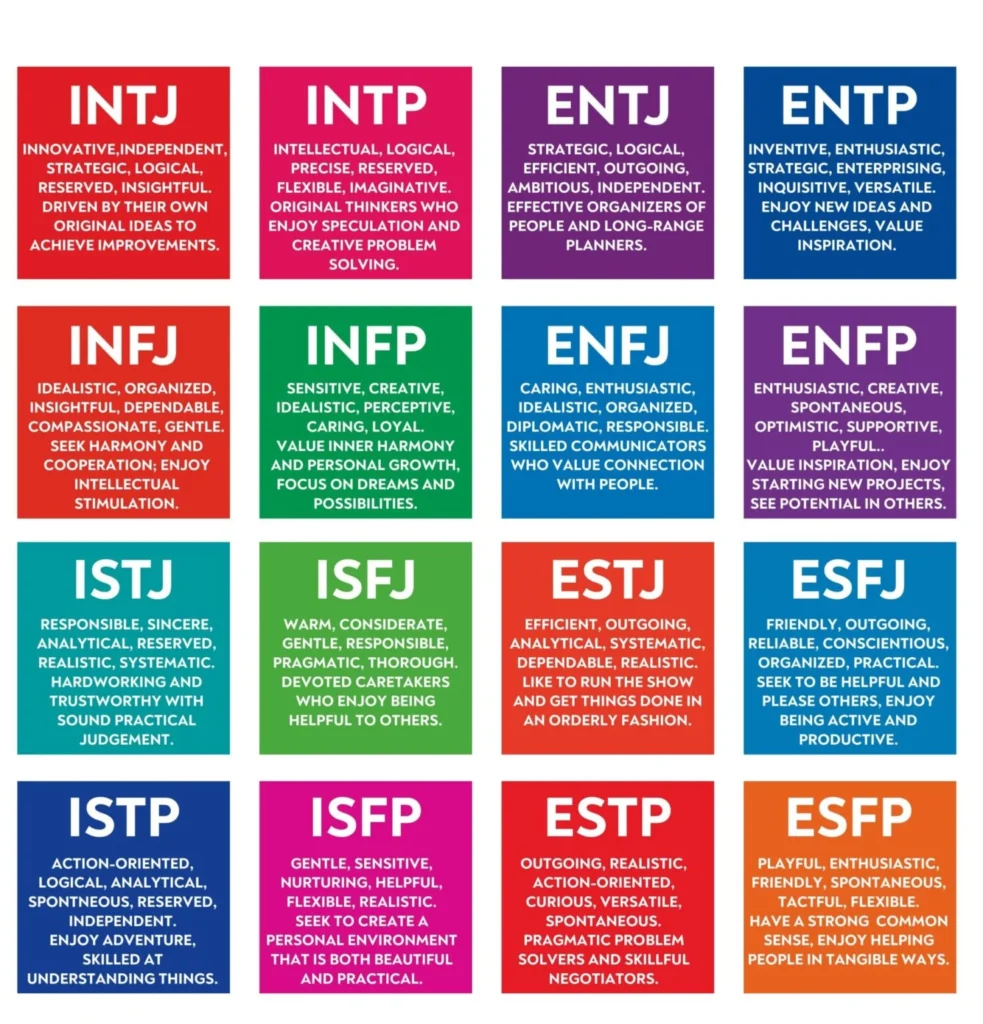
Ghosters have been known to be described as “players” or “popular” and have “more options.” A ghoster may have attributes of immaturity, selfishness, and a fear of confrontation. On the other hand the ghostee can have negative traits or behaviors as well, for example; clinginess, pushiness, and toxicity which can cause their partner to be more inclined to ghost them (Wu & Bamishigbin, 2023). Even so, a ghoster can recognize that ending a relationship by ghosting can be selfish, immature, and wrong. They can regret their decision and may feel the same emotions the ghostee experiences.
It is important analyze who attracts us and who is compatible and right for one another. Making informed decisions and not sliding into a relationship can help avoid being ghosted which can cause pain and distress.
Coping with a Break Up
Stress, depression, self-esteem, and attachment security can all be affected by ghosting. Breakups can be devastating even when it’s mutual, but not getting answers from a partner or even a goodbye can be hard to cope with. A study, by Tran and et. al., was conducted specifically looking at the emotional distress outcomes after break ups within long-term and short-term relationships, along with positive relationship experiences compared to negative relationship experiences. The findings within this study showed that negative relationship experiences caused greater emotional outcomes. A person will experience an increase in sadness, guilt, anger and self-blame. Understanding that you cannot control how another person responds and learning to move on can help navigate the afterlife of being ghosted. There are always ways to overcome negative thoughts and feelings.
- Ride the Wave: Allow yourself to feel your feelings. Your feelings are valid, you’re allowed to feel the grief, anger, sadness, and loneliness. Although, its okay to avoid a painful situation or block it from your mind using a technique such as imagery. Exercises that can be done are as follows: journaling thoughts, allowing thoughts to come but observing them, envisioning/drawing a “safe place.”
- Activities: Do an activity that requires thought and concentration. Make jewelry, puzzles, read, knit/crochet, paint, go outside, art, music, watch a movie, play cards, journal, do an assignment, play a game.
- Contributing: Do something that allows you to focus on another person. Write someone a letter, call a friend to say hi, send a card, call family to see how their day was, help someone out with a task, acts of kindness, make a gift for someone.
- Comparisons: Put your situation in perspective by comparing it to a challenge you overcame that was more painful/distressing. Think about a time where you overcame an obstacle and remind yourself of strength, ability, and resiliency.
Remember, Casper is a friendly ghost, but your partner may not be. If you feel like ghosting is the safest exit for you from a toxic or abusive relationship, then please do so. If a partner shows any of the ghosting red flags, has an avoidant and/or anxious attachment style, and has any of the Dark Triad personality traits, then analyze your relationship, have a conversation with your partner about defining the relationship and decide to commit or reevaluate if you are on the right path. Don’t settle and don’t ignore the voices that are screaming out “boo,” because they are not calling you a sweet pet name, they are the warning screams of the ghost.
Additional Resources:
If you or someone you know is experiencing domestic violence and/or sexual assault, please know you are not alone.
- Safe Passage
Dekalb, IL
Crisis Line: (815)756-5228
- Northern Illinois University Services
Crisis Hotline: 1(866)242-0111
Suicide Hotline: 1(800)784-2433
Depression Hotline: 1(630)482-9696
- National Domestic Violence Hotline
Crisis Line: 1(800)799-SAFE(7233)
- National Suicide Hotline
988
References:
- Astleitner, H., Bains, A., & Hörmann, S. (2023). The effects of personality and social media experiences on mental health: Examining the mediating role of fear of missing out, ghosting, and vaguebooking. Computers in Human Behavior, 138(107436).
- Bakermans-Krananburg, M.J., & Van Ijzendoorn, M.H. (1997). Adult attachment and the break-up of romantic relationships. Journal of Divorce and Remarriage, 27 (3/4), 121-139.
- Ballard, J. (2021, October 21). Two in five Americans say ghosts exist — and one in five say they’ve encountered one. YouGov. https://today.yougov.com/entertainment/articles/38919-americans-say-ghosts-exist-seen-a-ghost
- Collins, T. J., Thomas, A., & Harris, E. (2023). Unwanted and unfollowed: Defining ghosting and the role of social media unfollowing. Personal Relationships, 30(3), 939–959. https://doi.org/10.1111/pere.12492
- Collins, T.J., & Gillath, O. (2012). Attachment, breakup strategies, and associated outcomes: The effects of security enhancement on the selection of breakup strategies. Journal of Research in Personality, 46 (2012), 210-222.
- Jonason, P. K., Ka ́zmierczak, I., Campos, A. C., & Davis, M. D. (2021). Leaving without a word: Ghosting and the dark triad traits. Acta Psychologica, 220, Article 103425.
- Navarro, R., Rubio, E. L., Jiménez, S. Y., & Víllora, B. (2021). Individual, interpersonal and relationship factors associated with ghosting intention and behaviors in adult relationships: Examining the associations over and above being a recipient of ghosting. Telematics and Informatics, 57, 101513. https://doi.org/10.1016/j.tele.2020.101513
- Pancani, L., Aureli, N., & Riva, P. (2022). Relationship dissolution strategies: Comparing the psychological consequences of ghosting, orbiting, and rejection. Cyberpsychology, 16(2). https://doi.org/10.5817/cp2022-2-9
- Pancani, L., Mazzoni, D., Aureli, N., & Riva, P. (2021). Ghosting and orbiting: An analysis of victims’ experiences. Journal of Social and Personal Relationships, 38(7), 1987–2007. https://doi.org/10.1177/02654075211000417
- Sims, G. (2020, September 11). Ghosting: The Romantic Relationship Disappearing Act. Decide to Commit. https://decidetocommit.com/ghosting-the-romantic-relationship-disappearing-act/
- Timmermans, E., Hermans, A.-M., & Opree, S. J. (2021). Gone with the wind: Exploring mobile daters’ ghosting experiences. Journal of Social and Personal Relationships, 38(2), 783–801.
- Tran, K., Castiglioni, L., Walper, S., & Lux, U. (2023). Resolving relationship dissolution—what predicts emotional adjustment after breakup? Family Process, 1–14.
- Wu, K., & Bamishigbin, O. N. (2023). When silence speaks louder than words: Exploring the experiences and attitudes of ghosters. Personal Relationships. https://doi.org/10.1111/pere.12518
Discover more from Decide To Commit
Subscribe to get the latest posts sent to your email.









